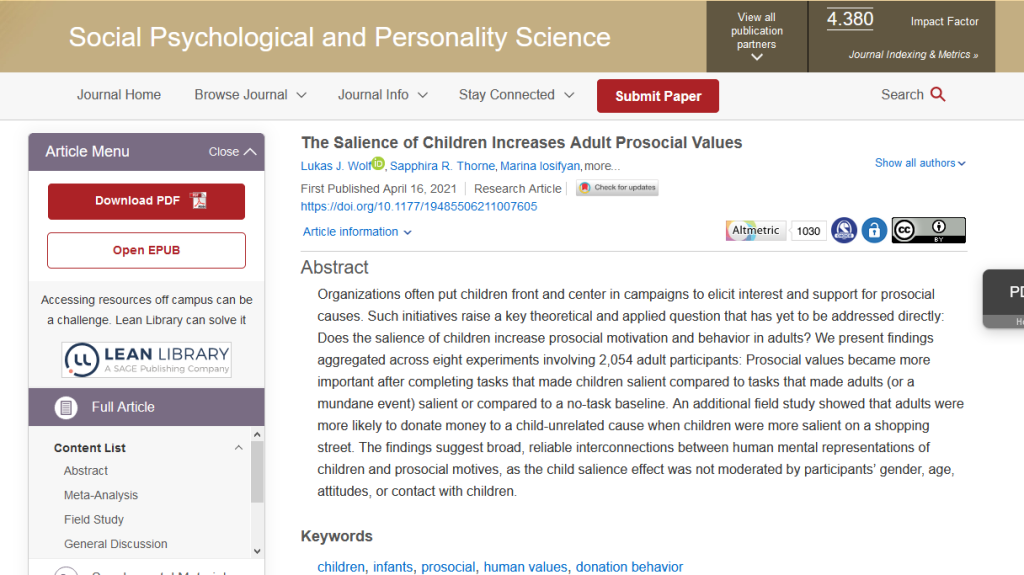There are many developments to report regarding the child salience project!
First, our funding from the Economic and Social Research Council has been extended until September this year. This extension has been granted primarily because the Covid-19 pandemic has prevented us from answering some follow-up questions on our earlier studies. For instance, we had planned to replicate and extend our field study, in which adult passers-by on a shopping street were more likely to donate to charity when more children were around relative to adults. As you may have seen in our previous newsletter, we had to put on hold a field study in a museum café, where we tested whether visitors would donate more when images of children are shown in the background. The pandemic has had another effect that complicates these kinds of field studies: People are less likely to carry around coins that they might donate. Now that Covid-19 restrictions are easing, we hope to be able to gather more evidence on this real-world effect that children appear to have on our generosity. We are currently planning two sets of follow-up studies and we will hopefully be able to report more news on this aim soon.
Second, we are excited to report that the core part of our work on the child salience effect has been published in a high-impact, peer-reviewed journal. This paper, which appears in the journal Social Psychological and Personality Science, describes eight experiments and the above-mentioned field study. In the experiments, participants described either what a typical child is like to them (for example, the child’s appearance, personality) or they completed a control task (for example, describing a typical adult). Across the experiments, we found that participants reported greater willingness to attain broad prosocial goals such as helping others, social justice, and protecting the environment. They also reported greater empathy with the plight of other adults after they had thought about children. We have termed this effect of thinking about children on prosocial motivation the “child salience effect”.

We were very happy to see that this publication elicited a broad range of interest beyond academia. For example, we were invited to contribute an article in The Conversation and to talk to BBC Radio Somerset and BBC Radio Bristol about our findings. Moreover, our research has been featured in approximately 300 newspaper articles around the world, including The Times and the Daily Mail.
Third, we are very close to submitting another write-up of our research to a high-impact journal. We have described this work on how adults evaluate children in a previous newsletter. In this project, we found that adults associate a range of feelings, beliefs, and behaviours with children, and interestingly, these feelings, beliefs, and behaviours do not only capture how positively adults view children, but also how stressed these child groups make them feel. Our research shows that the positivity and stress components can be robustly assessed with a short questionnaire measure, and that these components relate to distinct outcomes. For example, while the positivity component predicts greater willingness to donate to a child-friendly event (that is, the BBC Children in Need telethon event), the stress component predicts feeling more overwhelmed with juggling daily obligations and looking after one’s children during the Covid-19 lockdown. Moreover, this paper includes the mental images we discussed in our previous newsletter. Our more recent findings showed that participants who feel more positive towards children mentally visualise children as more confident and less shy, whereas participants who feel more stressed by children mentally visualise children as tougher and less innocent. These mental images of children align with our other findings for these two components and appear to reveal interesting assumptions about children that have not been tested before. We hope to be able to report more good news on this project soon too.

